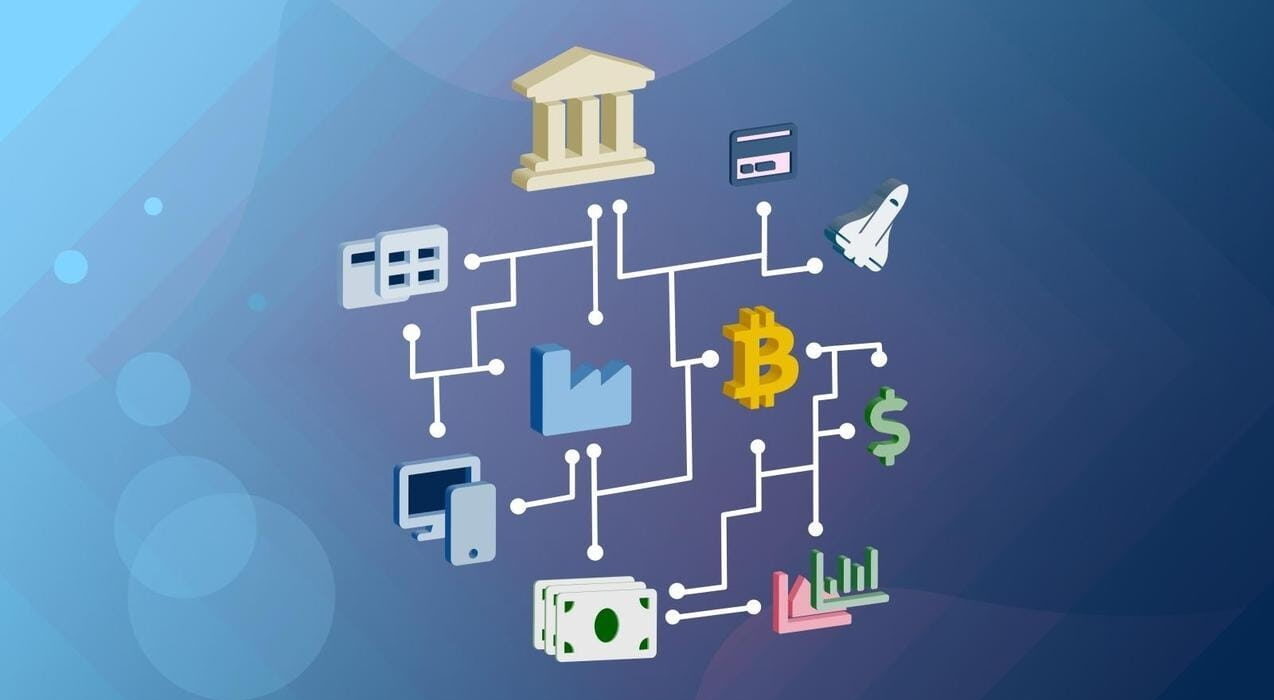DeFAI AI-Powered Automation in Decentralised Finance

The convergence of artificial intelligence and decentralised finance is revolutionising how investors approach digital asset management, creating unprecedented opportunities for automated investment strategies that were previously accessible only to institutional players. This transformation, known as DeFAI (Decentralised Finance + AI), represents a paradigm shift where machine learning algorithms and blockchain technology work together to optimise trading decisions, risk management, and yield generation across multiple protocols simultaneously. The market for these solutions could skyrocket from around $1 billion to $10 billion by the end of 2025, indicating the explosive growth potential of this emerging sector.
Manual decision-making processes, emotional biases, and limited access to sophisticated trading strategies have long dominated the traditional investment landscape. However, the integration of AI-powered automation into decentralized finance protocols is democratizing access to institutional-grade investment tools while eliminating human error and emotional trading decisions. Traditional DeFi platforms rely on manual user interactions to execute trades, manage risk, and optimize yields. With DeFAI, these tasks are automated using sophisticated AI algorithms and machine learning models, creating a more efficient and profitable investment environment for both retail and institutional participants.
Evolution of DeFAI Technology
DeFAI represents a sophisticated fusion of blockchain infrastructure and artificial intelligence that addresses the fundamental limitations of traditional decentralised finance platforms. DeFAI (Decentralised Finance + AI) is revolutionising crypto by integrating artificial intelligence with blockchain technology to enhance trading, risk management, and yield optimisation, creating autonomous systems that can make split-second investment decisions based on complex market data analysis.
The technological foundation of DeFAI platforms relies on advanced machine learning models that continuously analyse vast datasets to identify trading opportunities, assess risk parameters, and optimise portfolio allocations. Machine learning algorithms, integrated into the fabric of DeFi platforms, continuously analyse vast datasets to identify patterns indicative of suspicious behaviour, while simultaneously optimising investment strategies to maximise returns while minimising exposure to market volatility.
Leading projects in the DeFAI ecosystem are pioneering innovative approaches to automated investment management. The top projects leading the charts include Aixbt by Virtuals, PAAL AI, ChainGPT, Hey Anon, Autonolas, and GRIFFAIN, each offering unique solutions for different aspects of automated DeFi investing. These platforms leverage natural language processing, predictive analytics, and automated execution capabilities to create comprehensive investment management systems.
The infrastructure supporting DeFAI platforms incorporates cross-chain interoperability, enabling AI agents to operate across multiple blockchain networks simultaneously. Connect seamlessly with over 100+ blockchains and thousands of DeFi protocols. DeFi Index Funds, Orbit’s advanced AI technology ensures optimal cross-chain operations and maximum efficiency for all your transactions, demonstrating the sophisticated technical capabilities required to support modern automated investment strategies.
Automated Trading and Yield Optimisation
The application of AI automation in DeFi trading extends far beyond simple buy-and-sell operations to encompass sophisticated strategies including arbitrage, yield farming, liquidity provision, and risk management. Automated systems can find the best yields and most lucrative deals—liquidity farming bots in 2025. Supplying your assets to liquidity providers or providing them yourself is another good way of making profits in the crypto ecosystem, showcasing how automation enables investors to capitalise on opportunities that would be impossible to identify and execute manually.
Yield optimisation represents one of the most compelling applications of AI in DeFi, where machine learning algorithms continuously monitor hundreds of protocols to identify the highest-yielding opportunities while assessing associated risks. These systems can automatically migrate assets between different protocols as market conditions change, ensuring optimal returns without requiring constant manual intervention from investors. The ability to process vast amounts of data in real-time allows AI systems to identify temporary yield opportunities that exist for only minutes or hours.
Risk management automation through AI enables sophisticated hedging strategies that protect investment portfolios from adverse market movements while maintaining exposure to profitable opportunities. Machine learning models can predict market volatility, assess correlation patterns between different assets, and automatically adjust portfolio allocations to maintain optimal risk-return profiles. This level of sophisticated risk management was previously available only to institutional investors with substantial resources.
Arbitrage opportunities across different DeFi protocols and blockchain networks represent another area where AI automation provides significant advantages. AI systems can simultaneously monitor prices across dozens of exchanges and protocols, identifying price discrepancies and executing trades faster than human traders or simple bots. The speed and accuracy of AI-driven arbitrage systems enable consistent profit generation from market inefficiencies.
Personalised Investment Strategies
The personalisation capabilities of AI-powered DeFi platforms represent a fundamental shift from one-size-fits-all investment approaches toward highly customised strategies tailored to individual investor profiles, risk tolerances, and financial objectives. AI-powered DeFi platforms leverage advanced algorithms and machine learning to analyse user data and deliver highly personalised financial services tailored to the unique needs and preferences of each user, creating investment experiences that adapt and evolve with changing market conditions and investor circumstances.
Machine learning algorithms analyse multiple dimensions of investor behaviour, including transaction history, risk tolerance, investment preferences, and market timing patterns, to create sophisticated user profiles. These profiles enable AI systems to recommend optimal investment strategies, suggest portfolio rebalancing opportunities, and automatically execute trades that align with individual investor objectives. The continuous learning capability of these systems means that investment strategies become more refined and practical over time.

Advanced portfolio optimisation through machine learning extends beyond traditional asset allocation models to incorporate complex market dynamics, correlation patterns, and risk factors that human investors might overlook. Machine learning models can adapt to changing market conditions, optimising investment strategies, ensuring that portfolio allocations remain optimal as market conditions evolve and new opportunities emerge.
The integration of behavioural finance principles with AI automation helps address common investor biases and emotional decision-making that typically lead to suboptimal investment outcomes. AI systems can recognise patterns of emotional trading, implement cooling-off periods during volatile market conditions, and maintain disciplined investment approaches that prioritise long-term wealth building over short-term speculation.
Agents and Smart Contract Integration
The development of autonomous AI agents capable of executing complex DeFi strategies represents the cutting edge of automated investment technology. Autonomous agents in DeFAI handle complex activities like staking and liquidity management within secure frameworks, enabling sophisticated investment strategies that operate independently while maintaining security and transparency through blockchain technology.
Smart contract integration allows AI agents to interact directly with DeFi protocols without requiring manual intervention or centralised control. These autonomous systems can execute trades, manage liquidity positions, participate in governance decisions, and optimise yield farming strategies across multiple protocols simultaneously. The trustless nature of brilliant contract execution ensures that AI agents operate transparently and cannot deviate from their programmed parameters.
The creation and deployment of AI agents has been democratized through platforms that allow users to customize automated investment strategies without requiring programming expertise. Griffain has emerged as an early leader among DeFAI launchpads, alongside competitors Neur and Hey Anon. These platforms allow users to create and deploy AI agents for DeFi activities, making sophisticated automated investment tools accessible to retail investors who previously lacked access to such capabilities.
Security considerations for autonomous AI agents include multi-layered verification systems, emergency shutdown mechanisms, and transparent audit trails that ensure proper functioning while protecting investor assets. Enhanced security protocols powered by AI can safeguard user data and prevent fraud, addressing the critical security requirements necessary for automated investment systems managing substantial financial assets.
Market Impact and Industry Transformation
The rapid adoption of AI-powered DeFi automation is fundamentally transforming the investment landscape by democratizing access to sophisticated trading strategies and institutional-grade investment tools. This transformation is creating new competitive dynamics where success depends on the quality of AI algorithms and automation capabilities rather than traditional factors like manual trading expertise or market timing abilities.
The efficiency gains from AI automation are reducing transaction costs, eliminating human error, and enabling 24/7 investment management that never sleeps or takes breaks. These operational advantages are translating into improved returns for investors while reducing the time and expertise required to manage complex DeFi portfolios. The compound effect of these improvements is creating significant value for early adopters of AI-powered investment platforms.
Market liquidity is being enhanced through AI-driven automated market making and liquidity provision strategies that maintain efficient price discovery and reduce slippage for all market participants. AI systems can provide consistent liquidity across multiple protocols and market conditions, creating more stable and efficient DeFi markets that benefit the entire ecosystem.
The competitive landscape is evolving rapidly as traditional investment management firms recognise the need to incorporate AI automation or risk becoming obsolete. This competitive pressure is driving innovation and improvement in AI-powered investment tools while reducing costs for end users. The democratisation of institutional-grade investment capabilities is levelling the playing field between retail and institutional investors.
Investment Strategies and Implementation
Successful implementation of AI-powered DeFi automation requires careful consideration of investment objectives, risk tolerance, and technical capabilities. Investors should begin with small allocations to automated systems while learning about the technology and assessing performance before committing larger amounts of capital. The gradual approach allows investors to understand the capabilities and limitations of AI-powered investment tools.
Diversification across multiple AI-powered platforms and strategies can help reduce concentration risk while maximising exposure to different automated investment approaches. No single AI system or strategy is optimal for all market conditions, so diversification across multiple automated approaches can improve overall portfolio performance and reduce risk.
Monitoring and evaluation of AI-powered investment performance requires new metrics and analytical approaches that account for the unique characteristics of automated systems. Traditional investment performance metrics may not adequately capture the value created by AI automation, requiring investors to develop new frameworks for evaluating automated investment strategies.
The integration of AI-powered DeFi automation with traditional investment portfolios requires careful consideration of correlation patterns, risk factors, and rebalancing strategies that account for the unique characteristics of automated systems. Professional investment advice may be beneficial for investors seeking to incorporate AI-powered DeFi automation into comprehensive wealth management strategies.
